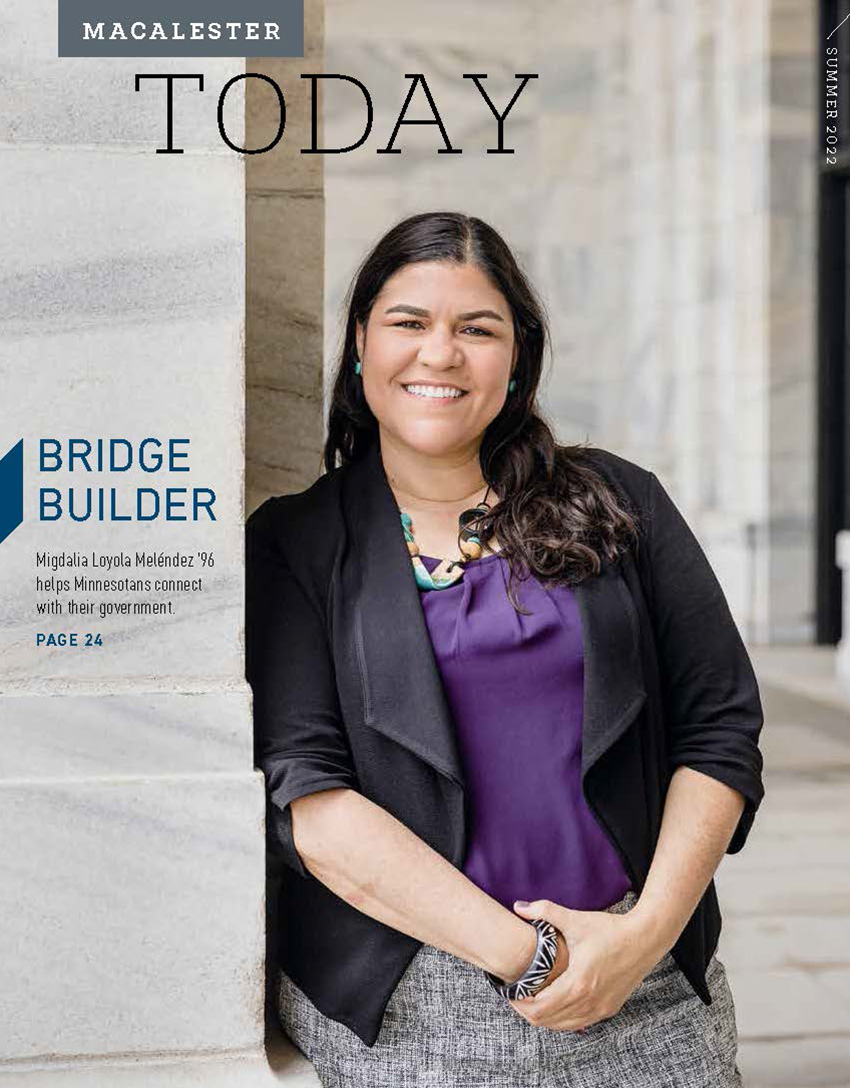
By Talia Bank ’23
Every year, Macalester seniors conduct a wide range of original academic and creative work. We browsed this year’s list of honors theses and asked a few authors to tell us more about their projects and what they learned.
“The Sounds of Home: A Composition Portfolio”
Paul Cosme (Quezon City, Philippines)
International studies and music
“The Philippines is a polycultural state. The concept of Filipino national culture is syncretic, dynamic, and it’s always been continually recreated. To create Filipino national culture is attending to the folk sources from different regions but also recognizing deep colonial scars. And what some people define as Filipino national culture might not be what I experience—it’s unique to every person. That’s why I named this project ‘The Sounds of Home’ instead of calling it ‘The Sounds of the Philippines’ or whatnot—because home is something very unique to me. It was really hard to bring it alive and to rehearse. I did not expect to turn myself into a quasi-conductor, working with people how they should play my works. But we have great musicians, and it was a learning experience. In essence, everything really just all came from the heart.”

“Don’t Beep At Me: Using Google Maps APIs to Reduce Driving Anxiety”
Daniel Chechelnitsky (Shoreview, Minn.)
Computer science and linguistics
“Google Maps drew my attention because I was interested in how the path-finding algorithm between the starting and ending location works. Then this project coincided with my own personal experiences with Google Maps. Sometimes to take the fastest path it makes me go through really sticky situations while driving that I’d rather just avoid. This got me wondering if there’s a way to update the algorithm to find the least stressful path by using aggregate heart rate data instead of speed limit in its calculation function. I built my own map, built the whole algorithm from the ground-up. In terms of future work, the more people use my app, the more accurate the data becomes. There’s so much room that I can expand upon; this is a project I can always come back to and work on.”
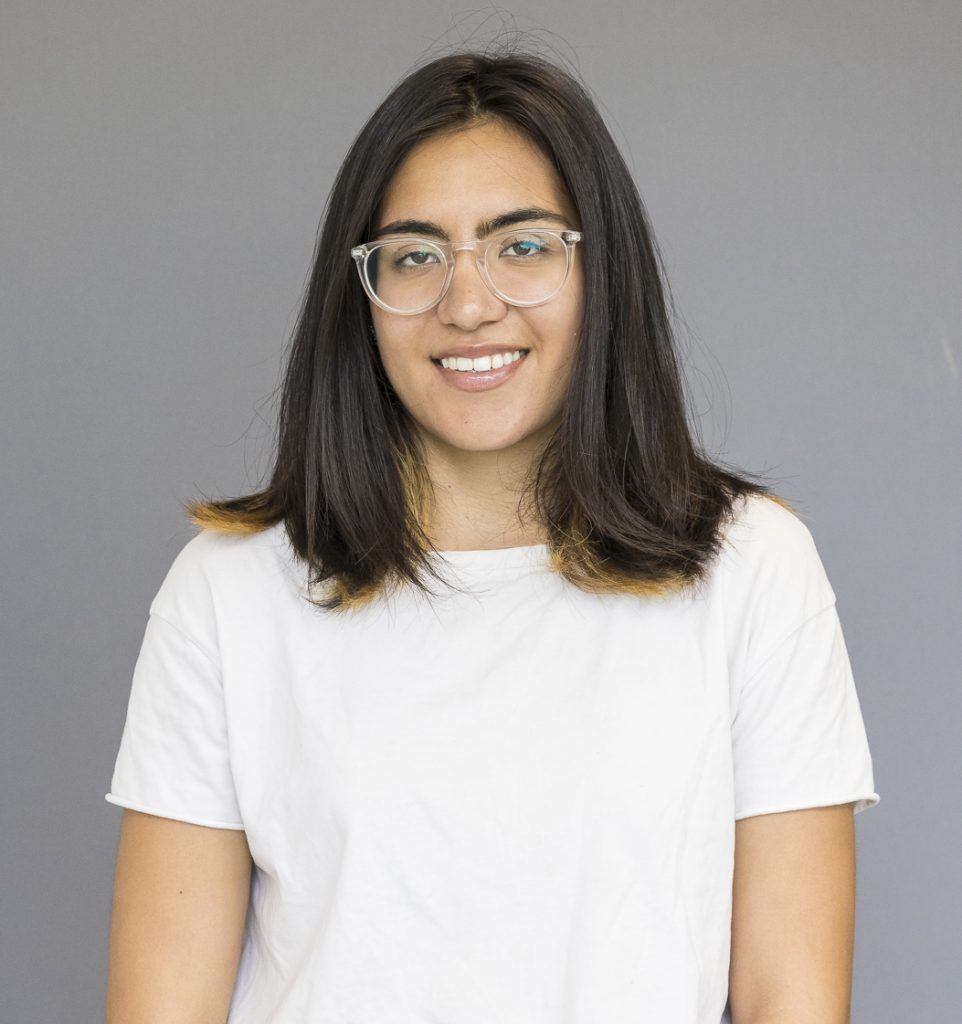
“The Value of Education: Unpacking School Policy Decisions During the COVID-19 Pandemic”
Elika Somani (Singapore)
Global health and international development
“Looking at school reopening decisions during COVID, you have lives saved from COVID restrictions versus the long-term impacts of remote schooling on things like education, economics, and society. I wanted to know more about how school policymakers who are not public health experts made these sorts of public health decisions. Generally, humans are really bad at thinking about cost and benefits, especially considering future people and future impacts. It was definitely to be expected that politics and personal perspectives influence decision making, but to a level that definitely surprised me. We need to have better systems and structures in place so that leaders can make decisions that better support all people—not just people currently alive and not just people in specific circumstances.”
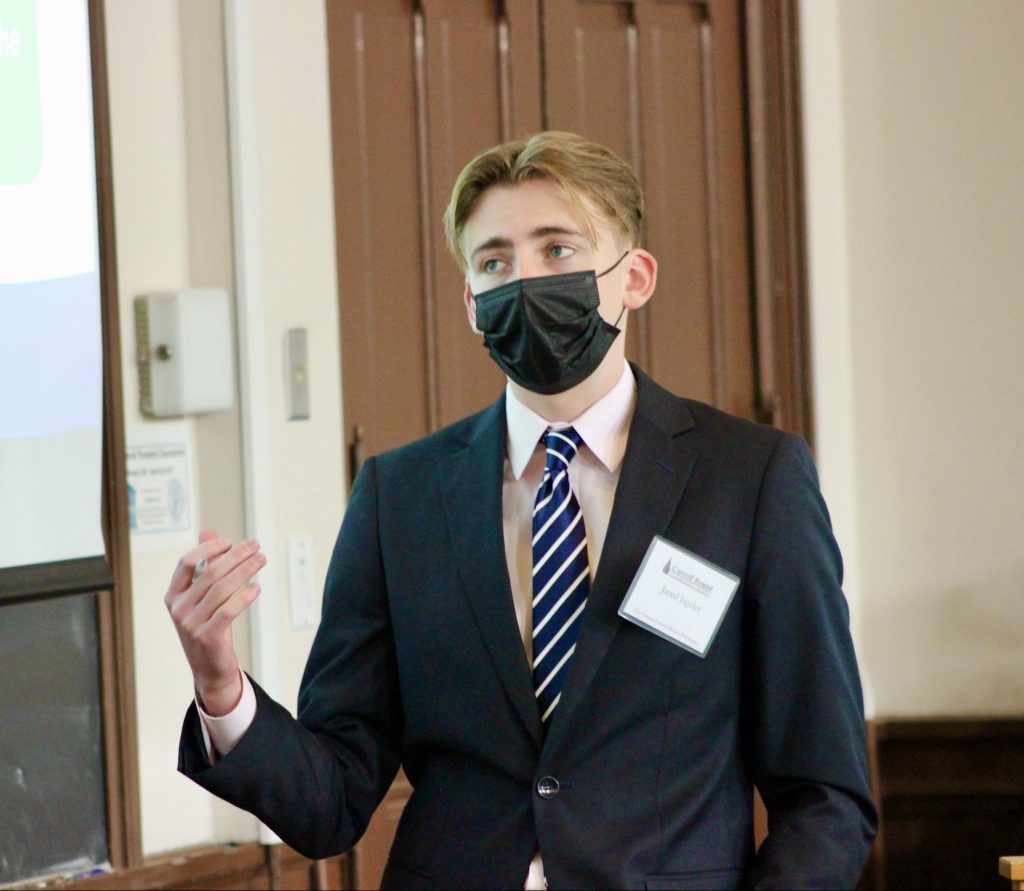
“Did the Clean Air Act Improve Environmental Justice Disparities?”
Jared Jageler (Barrington, R.I.)
Economics
“My motivation for seeing whether the Clean Air Act improved environmental justice outcomes in the United States came from my interest in the intersections of economic data analysis with public policy and justice. While the dataset was massive, the most challenging aspect of the project was digging for causation, not just correlation. How do you figure out whether it was actually the Clean Air Act that caused this change when there are countless things happening in the country at the same time? It’s a complicated story, so I was pleasantly surprised to find evidence that the regulations did help close those gaps. Questions about justice are something that economics has kind of historically ignored, but undergraduate research can be an avenue where the field can diversify and try to promote a more equitable message.”
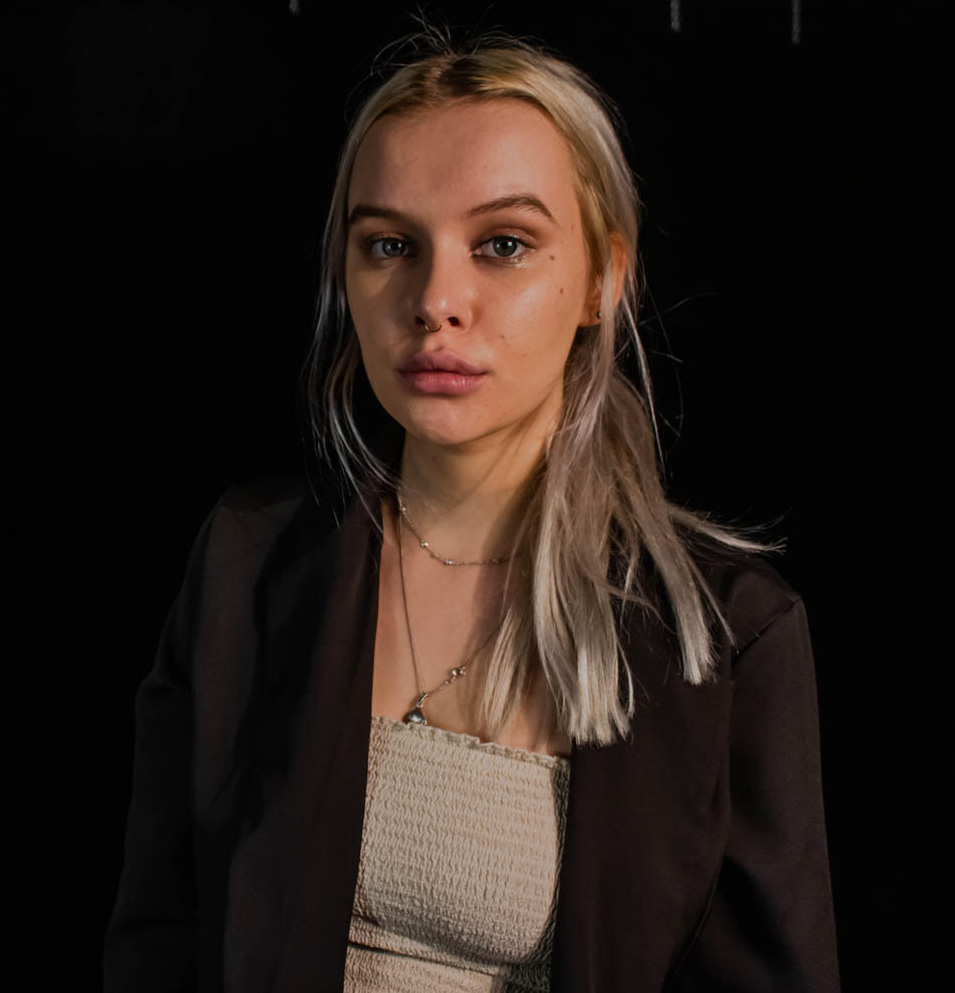
“Information Imperialism as Hybrid Warfare: The War on Ukraine”
Maya Sobchuk (Kyiv, Ukraine, and Los Angeles)
International studies and political science
“I’m from Ukraine originally, and when the war first happened in 2014, I was very shaken by it, and that’s why I wanted to study international relations. But when I came to college, I realized that the war was being fought with tanks, missiles, and traditional warfare, but also through information and media. It was fought just as much in cyberspace as on the ground. In today’s context of the full-scale invasion, I feel like something I have been trying to warn about in my thesis actually happened. That’s why I think that it’s just as important to think about information in the same way we think about conventional military tactics. With my project, I was trying to paint a holistic understanding of the information-scape in Ukraine and why that’s contributed to what’s happening right now.”
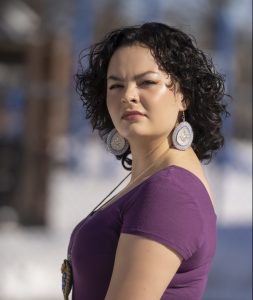
“Ginanaandawi’idizomin: Anishinaabe Intergenerational Healing Models of Resistance”
Zoe Allen (White Earth Nation, Minn.)
Sociology and American studies
“I’m an Anishinaabe, Lakota, and Dakota student and I’ve always wanted to do work around my community. I have known and loved and cared for a lot of people who struggle with addiction in the White Earth Nation, so this is a project that’s very close to my heart. It’s been really hard to do, but it’s also really important to me to give that perspective because I feel like there aren’t a lot of Native perspectives in academia, especially when it comes to really hard issues like addiction. There’s been heightened awareness around our historical trauma and the things we’ve endured due to colonialism—we’re able to speak more to that now. My project is an oral history revolving around intergenerational healing and how that’s currently being practiced in my community. Ginanaandawi’idizomin, the title of my project, translates to how we heal each other. The main tenet of this work is healing through culture, and my interviewees really spoke to that.”
May 10 2022
Back to top